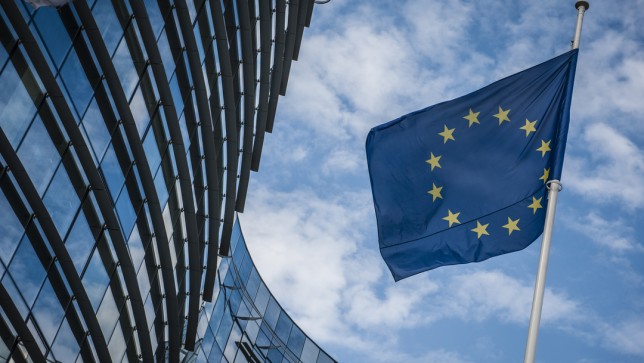– EU Commission Says None of Your Business on Glyphosate Risk Assessment (Activist Post, Aug 19, 2015):
The EU Commission is refusing to let independent researchers anywhere near a recent glyphosate risk assessment. Of course, it makes people wonder all the more when the Commission says there should be no overriding “public interest” and acts as though revealing the results were a matter of national security.
Unlike propagandists acting as scientism skeptics, who pretend it’s safe to drink glyphosate (the active ingredient in Monsanto’s Roundup herbicide) – many other studies and observations prove that human exposure is hazardous. Sometimes it’s finding out that glyphosate can lead to breast cancer in parts per trillion, that it hijacks hormones and is found in breast milk and in rain samples. Sometimes it’s a farmer waking up to discover that his piglets are deformed and dying – so he sends them off to a lab. Sometimes you find out that the so-called experts who tell us to “trust science” as they pretend to drink glyphosate are actually getting funds from Monsanto.
Here, we actually have independent researchers ready to face the results of the assessment, come what may, and the Commission basically says, “you can’t look at that.” Even though parts of Europe are known for blocking GMO crops, restricting pesticides and labeling or restricting GMO food products, Monsanto et al. have been orbiting the EU strategically finding openings. Whether it’s by funding research projects to “help the bees,” pretending to help the bees, or better yet, getting super cozy with the commish‘.
Sustainable Pulse reported:
In a letter to Testbiotech dated 10 August 2015, the Commission says that the documents made available to the European Food Safety Authority (EFSA) by the German government “are protected in their entirety” as confidential. The EU Commission can see “no overriding public interest” that would justify access. There is, however, clearly public interest in the matter since the International Agency for Research on Cancer (IARC) of the World health Organisation (WHO) has already declared that glyphosate is probably carcinogenic to humans. However, the German Federal Institute for Risk Assessment (BfR), is claiming there would be no risk to human health.
The letter from the Commission continues to say, “disclosure of these documents at this stage of the process will be premature and would seriously undermine EFSA’s ongoing decision-making process.”
Here’s the kicker: it appears Monsanto et al. have already had access to the results. Sustainable Pulse noted “they reviewed an advanced draft of the report, dated January 2015. Soon afterward, industry quickly published a scientific paper claiming that glyphosate would not be carcinogenic. This was then promptly picked up by the German authority for the final version of its report.”
Christoph Then of Testbiotech couldn’t help but notice the hypocrisy of allowing industry access but barring independent experts saying that it would undermine decision making.
He says:
Glyphosate is present in many food products, it is the most widely used herbicide in the world. If it is carcinogenic it could impact consumers’ health substantially. Therefore, from the perspective of public interest, there is no doubt that transparency in risk assessment must be given a high priority.
The EU Commission and the EU Member States are failing to comply with a 2013 court case that demands public transparency for results like this glyphosate risk assessment.
If this weren’t so serious a matter, it might be funny in a maddening sort of way. But there is nothing bordering on levity when it comes to the revolving door of governments and megacorps who control most of the food supply and don’t actually want to feed the world, or better our health, or help farmers or the dying bees.
